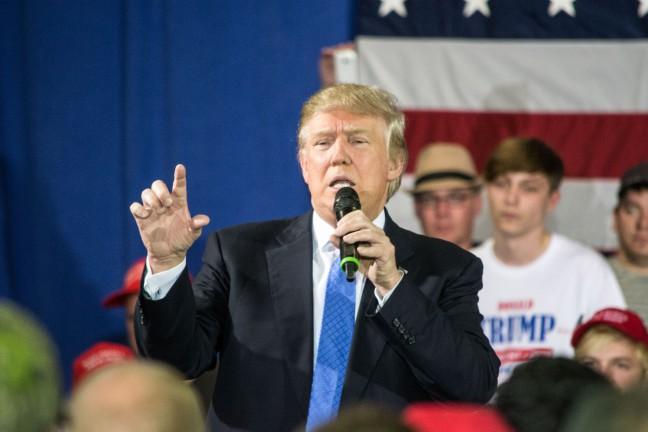The coming era of mass automation, free-flowing capital and labor and advanced globalization only raises the imperative for implementing meaningful economic public policy. The United States’ continued success in the global marketplace will depend particularly on immigration and free trade, two issues more misunderstood than any in the arena of American politics. Congress and President Donald Trump need to get these policies right. It’s a pity they won’t.
In the 2016 election cycle, Trump called the United States a “dumping ground” for the rest of the world’s population. He famously spoke of Mexican immigrants coming to rape Americans. In fact, one of the single strongest predictors of a voter’s support for Trump was a belief in the importance of immigrant assimilation.
A strong, pro-economic growth immigration policy would contain a number of proposals: A comprehensive pathway to citizenship for the undocumented, a reformation of the legal immigration system to encourage innovators and entrepreneurship, expanding refugee caps and increased funding for border control technologies like drones.
The 2013 Gang of Eight immigration bill, which passed the Senate but never came to a House vote under House Speaker Paul Ryan, R-Wisc., marks a good starting point. For reference, it was projected to raise wages, cut the deficit by $700 billion and create nine million jobs by 2033.
On immigration reform, the Trump administration has thus far failed to capitalize on benefits to the U.S. economy. Take a straightforward, bipartisan example: A proposed Obama-era “startup visa” program for foreign entrepreneurs, which Trump has delayed with the intention of ending.
The program would guarantee temporary residency for entrepreneurs who had received a predetermined amount of seed money for a startup by a venture capital fund. Instead, these job creators will now head to France and Canada, who will welcome them with open arms.
H-1B visa program under federal review keeps UW faculty recruitment competitive
Then there’s the administration’s beloved RAISE Act — introduced by Senators Tom Cotton, R-Ark., and David Perdue, R-Ga. — which effectively cuts legal immigration in half. The act imposes a merit-based points system (emphasizing Olympic medalists and Nobel Prize winners) that has been proven not to work in other countries where it has been tried.
Instead of welcoming those who would strengthen and diversify the American workforce, Trump’s calls for a mass deportation force would have disastrous economic effects. Should the president get his way, GDP would be expected to contract by $4.7 trillion over the next decade.
A compassionate immigration policy isn’t just humane, it’s economically beneficial. Think tanks on the left and right have found that immigrants do not depress employment. In fact, studies show that immigrants bring enhanced innovation and productivity.
Trump signs executive order looking to put ‘America first’ in Kenosha visit
That’s to say nothing of the humanitarian impact of myopic immigration policy. President Trump’s recent pardon of Maricopa County Sherriff Joe Arpaio — famous for racially profiling Latinos and sending his victims to what he described as a “concentration camp,” — sends a message to our allies and enemies alike that the United States has a double standard on its rhetoric for the rule of law.
Promoting human rights abroad becomes that much harder when the leader of the free world undermines the rights of his own constituents at home.
When the president isn’t childishly demanding to impose tariffs without reason, he’s also foregoing economic growth by closing opportunities for free trade. Earlier this year, he unilaterally withdrew from the Trans-Pacific Partnership. However controversial the trade plan, TPP was still projected to lower prices and raise wages with a negligible effect on employment.
If Congress knows what’s good for America, they’ll pass the TPP in Obama’s lame-duck period
On a geopolitical level, the agreement was set to encourage human rights reforms in member countries like Vietnam and to counter China’s increasing economic hegemony in the Pacific Rim, all part of former President Barack Obama’s “pivot to Asia.” The TPP could and should have been strengthened to improve labor conditions in all member nations, enhance enforcement mechanisms and relax restrictive pharmaceutical patent protections.
President Trump threw out the plan entirely, thus hampering diplomatic and economic ties in the region. That doesn’t just frustrate so-called “coastal elites,” but tangibly hurts rural America, which include bastions of Trump supporters like Iowa and North Carolina. Japan, for example, was set to become a beneficiary of increased American exports of beef, potatoes, pork and other products that come from red states.
Wisconsin dairy farmers in particular would have seen a boom in business. Instead, Japan and other Asian countries will have to seek other trade partners from which to import cheese and milk.
Extinguishing markets for American exports isn’t pro-America or pro-business — it’s inept policy that Wisconsin and other states in the heartland will soon have to confront.
These self-inflicted wounds only scratch the surface. Trump’s apologies for white supremacists drove CEOs to disassociate with his White House. His recently trumpeted Foxconn factory deal in Wisconsin is set to be a loser for Wisconsin taxpayers for more than two decades to come. And, his emphasis on coal over clean energy jobs also forfeits the opportunity to invest in emerging and important sectors.
During the campaign, Trump promised America that we would be “tired of winning.” On the global stage, under Trump’s vision, America’s economy will be tired, but it certainly won’t be winning.
Zach Urisman ([email protected]) is a senior majoring in finance.














